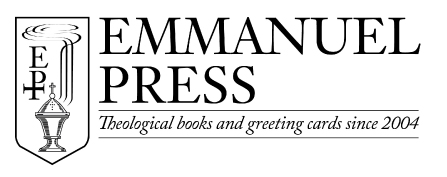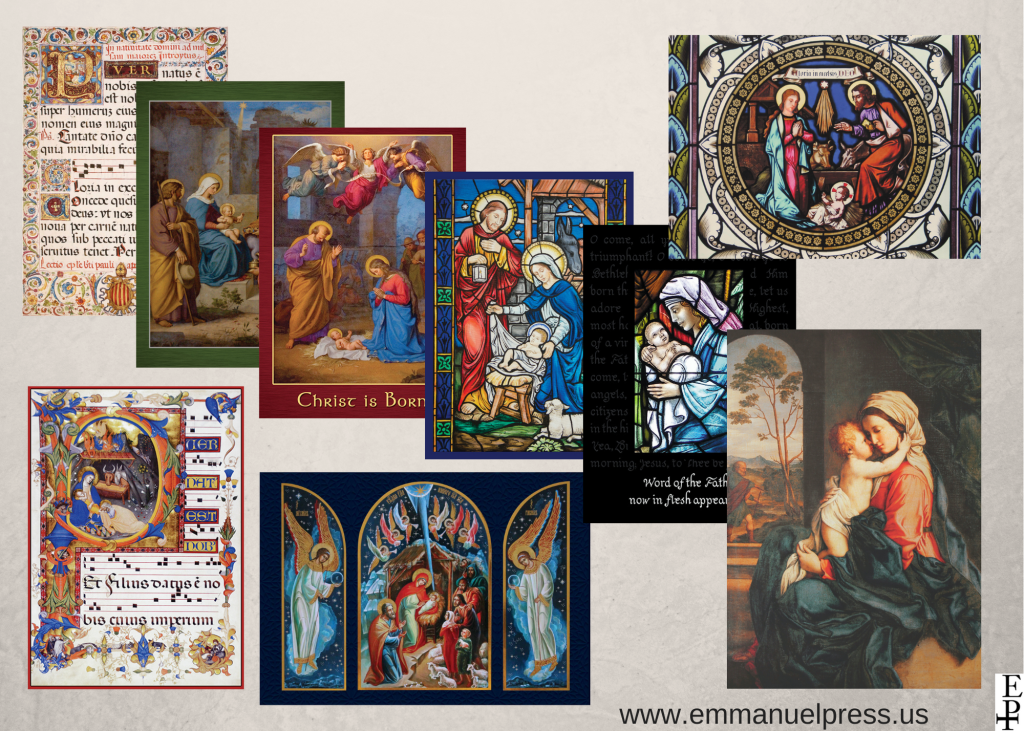Didache is back in stock!
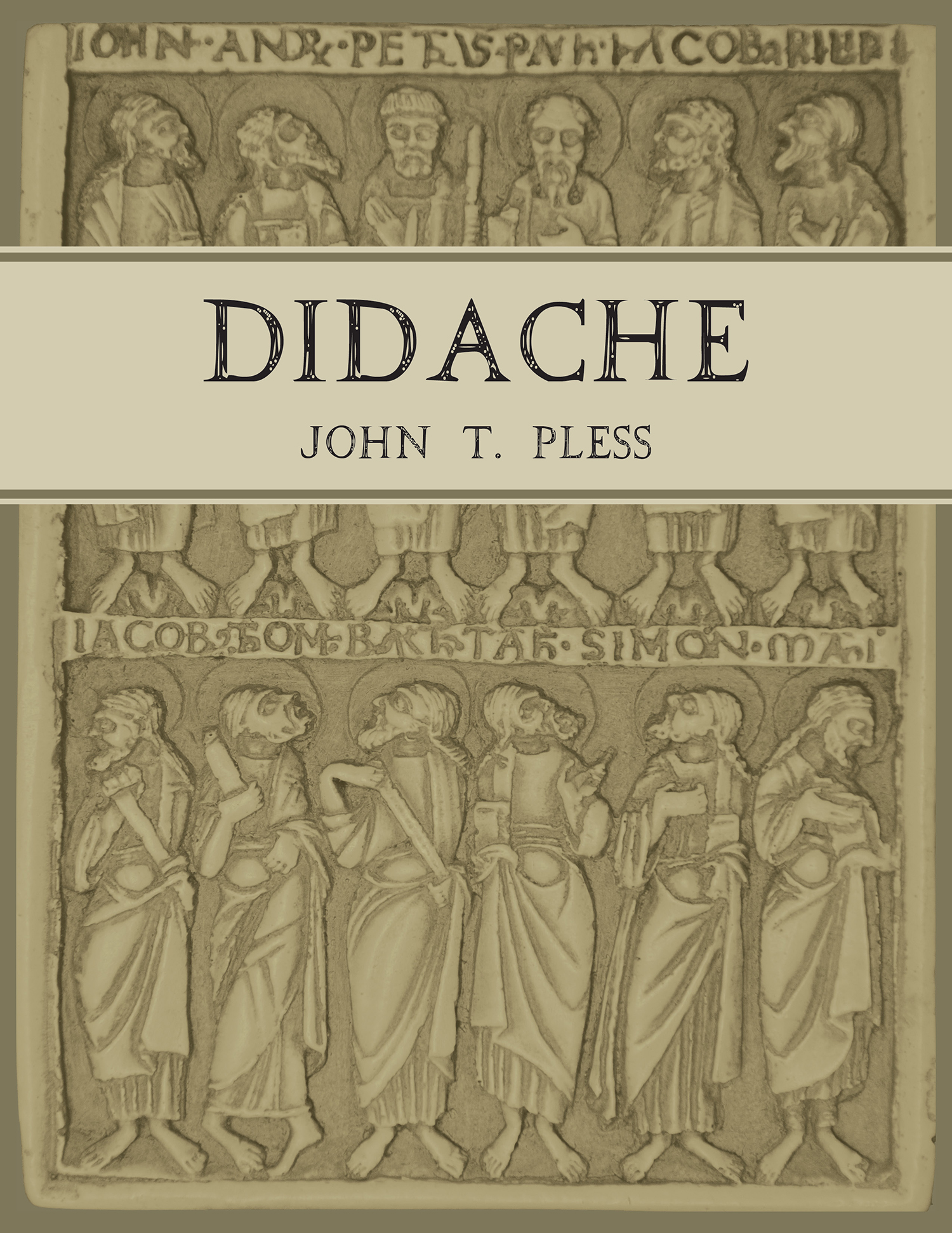 A burst of orders several months ago caused Didache to suddenly sell out. We are pleased to announce that (after patiently waiting during these ubiquitous delays and shortages) it is back in stock! Find more details here.
A burst of orders several months ago caused Didache to suddenly sell out. We are pleased to announce that (after patiently waiting during these ubiquitous delays and shortages) it is back in stock! Find more details here.
“The Catechism confesses that the benefits of faithful eating and drinking in the Sacrament are the ‘forgiveness of sins, life, and salvation’ given us through our Lord’s words. The forgiveness of sins is the primary gift which God bestows in the Supper and is the foundation for life and salvation. Forgiveness of sins is the content of the New Testament. The word ‘testament’ indicates that a death is necessary. The death of the one who makes the testament is necessary for the testament to take effect. Jesus’ death is the energy unleashed in the Lord’s Supper. A testament also indicates heirs and inheritance. In this testament, ‘given and shed for you for the forgiveness of sins’ indicates that we are heirs and that the inheritance is the forgiveness of sins won by Jesus’ atoning death as a sacrifice in our place.”
-John T. Pless in Didache, a book that instructs in a basic pattern of catechesis which recognizes that doctrine is drawn from the Holy Scriptures, confessed in Luther’s Small Catechism, and expressed in the hymnal. Suitable for group or individual study.
God With Us: Daily readings for Advent
God With Us by Pr. David H. Petersen contains fifty-nine sermons spanning Advent, Christmas, and Epiphany, including daily sermons for all of Advent. Many customers tell us that they’ve given God With Us to family and friends since these brief sermons serve well for daily devotions.
Excerpts: “How might we keep the Law and love one another without fail, without holding back? Setting our will to do it or making promises and resolutions has never worked before, and it won’t work now. How might we keep the Law which we’ve never yet kept before? By putting on the Lord Jesus Christ. That is it. It is the only way. It is in being loved, being forgiven, being fed the Holy Supper that not only is sin forgiven but faith is also strengthened. In that—those things that God has given for His Church, for her faith and life—the Holy Spirit takes up residence and works do follow. The only way for sinners like us to keep the Law is to have the Law kept for us.”
“The boys [of Bethlehem] gave up their lives while the fullness of God hidden in Mary’s babe slipped off in the night. What kind of a God is this who lets the babies die? What kind of a reward is this for David’s city? Where is the peace pronounced by angels to the shepherds in Bethlehem’s fields? Where is God’s good will toward men? The answer is not very satisfying to our intellect: the ways of God are not our ways. His thoughts are not our thoughts. But it is satisfying to faith. And if you think that you have plumbed those depths, that you understand Him, that His ways and thoughts make sense, then you have committed idolatry. You are worshiping a figment of your imagination which you call God but who looks and thinks like you. Repent. He is not fully comprehensible and we cannot judge Him. We have no right to make demands or to insist on what seems just to us. We submit in faith and wait for His goodness to be revealed.”
The Word Remains: Festival of the Reformation
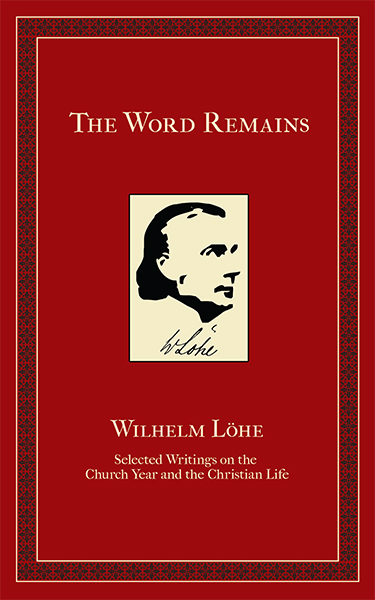 “The Reformation, my friends, what was it? We know what the Church looked like before it, but what was it really? Judge whether this is true. I say, it was a time when the Lord went into His temple, braided a whip of cords, and cleansed His courts.
“The Reformation, my friends, what was it? We know what the Church looked like before it, but what was it really? Judge whether this is true. I say, it was a time when the Lord went into His temple, braided a whip of cords, and cleansed His courts.
“Yes, the Reformation was a cleansing of the temple. Or is that not so? Where now do we have all that indulgence nonsense, masses for the dead, sacrifices of the mass, works-righteousness, and all the endless supply of worthless trinkets? That whole business was overthrown and swept out. The Word of the Lord drove into it like a punishing whip and put an end to the spiritual torment, the heavy yoke laid on by men and yet not humanly possible, but unbearable. The Word of the Lord burst in and overturned the chaos of self-interest, the marketplace of self- and works-righteousness. And the one who remained in the temple was the Lord with His apostles and disciples, with His sweet Gospel.”
-an excerpt from The Word Remains: Selected Writings on the Church Year and the Christian Life by Wilhelm Löhe (pp. 36-37)
Now Available: The Brotherhood Prayer Book, paperback edition
 We are pleased to offer a new paperback version of The Brotherhood Prayer Book, Second Revised Edition. After recently selling the last of the popular hardcover BPB, we decided to pursue a black-and-white version that is available at a lower cost and to a larger audience. Not only can you purchase the book on our website, but it is also available on Amazon for both Kindle and as a paperback, which means that international customers can now order from their own country’s Amazon website and save on shipping. This is excellent news since we have customers from almost every continent who have purchased or inquired about this prayer book.
We are pleased to offer a new paperback version of The Brotherhood Prayer Book, Second Revised Edition. After recently selling the last of the popular hardcover BPB, we decided to pursue a black-and-white version that is available at a lower cost and to a larger audience. Not only can you purchase the book on our website, but it is also available on Amazon for both Kindle and as a paperback, which means that international customers can now order from their own country’s Amazon website and save on shipping. This is excellent news since we have customers from almost every continent who have purchased or inquired about this prayer book.
While the cover material and appearance may have changed, the interior content remains the same, with the exception that all text that appeared in red (in the hardcover) is now gray. Find more details about the book here, including a PDF sample of the contents and a free download of the Beichtspiegel unique to The Brotherhood Prayer Book.
Two-Day Pre-Lent Sale – up to 30% off
Select books are up to 30% off today (2/15) and tomorrow (2/16). 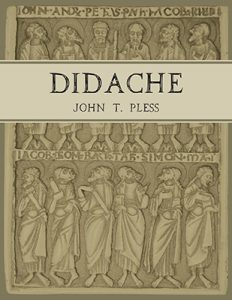
*Prof. John Pless’s Didache uses the Bible, Luther’s Small Catechism, and the hymnal to instruct in a basic pattern of catechesis which expounds upon doctrine, liturgy, and vocation. Many pastors find it to be a helpful guide for Bible Class, while other customers use it for individual or group study.
*He Remembers the Barren by Katie Schuermann offers comfort not only to those who struggle with the painful experience of barrenness, but also to anyone who knows the grief and shame of suffering. It is a valuable resource for family  members, friends, pastors, or anyone seeking to better understand and empathize with the barren experience of a loved one.
members, friends, pastors, or anyone seeking to better understand and empathize with the barren experience of a loved one.
*He Restores My Soul, also by Katie Schuermann, is a collection of 14 chapters by 12 authors, giving the reader “a glimpse into some of the many ways suffering can and does manifest itself in our lives while providing a lens through which the Christian sees suffering and responds to it; namely through the cross of Christ.”
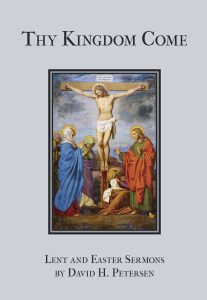
*Thy Kingdom Come by Pr. David Petersen offers daily sermons beginning on Ash Wednesday, continuing during Lent, and through the Sundays in Easter up to Pentecost. This book is invaluable for homiletical ideas and for the devotional reading of excellent Law & Gospel sermons.
*What an Altar Guild Should Know gives details about church services, rubrics, altar care, sacred vessels, and other topics related to liturgical worship. However, anyone who is interested in liturgical worship will appreciate Lang’s keen theological insight into why reverence and beauty and the externals of worship 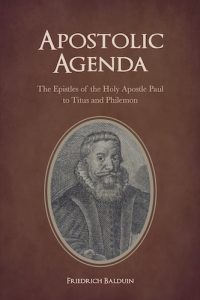 matter.
matter.
*In The Word Remains, Wilhelm Löhe gives insight into the confessional Lutheran understanding of the church year, the Word of God, and matters related to the Christian life.
Apostolic Agenda is a Lutheran Orthodox commentary on Titus and Philemon, the first of its kind in English.
A Sermon for the Fourth Day of Christmas: Holy Innocents

From God With Us by Pr. David H. Petersen.
He came unto His own. His own received Him not. It is not merely wicked Herod. It is all of Jerusalem that rejects Him, for all of Jerusalem is deeply troubled at the coming of the wise men from the East.
The wise men want to know where the King of kings, the Prince of Peace, is to be born. They are wise by virtue of Daniel. He had prophesied in their country. He must have brought them at least some of the books of Moses, for they have Balaam’s promised sign of a star. They have seen it fulfilled. By faith, with trust that the God of Moses has fulfilled these things and provided a Savior, they come to worship the one thereby announced. But the star, for the time being, has only led them to Jerusalem, and they do not know where the Messiah is.
It seems that they did not have all of the Old Testament, that they did not have even all of the things written by the time of Daniel. In any case, they did not have Micah’s promise to Bethlehem, even though Micah predates Daniel. But it was not a great mystery as to where the Messiah was to be born for those who did. The priests were well-trained in the Scriptures. They knew all about the thirty pieces of silver and the potter’s field. They were quick to respond to the wise inquiry: “Bethlehem.”
And yet, none of those Biblical scholars followed the wise men to Bethlehem. Instead, they were troubled with Herod, and all Jerusalem with them. They were not rejoicing. They were raging, plotting. They did not want the Messiah and the necessary upset that He would bring to the world. Herod lashed out with Satanic hatred and violence unequaled in all of time, and he did so with the consent of both Jerusalem and the theologians. The boys of Bethlehem and their mothers bore the brunt of that wicked rage.
The boys gave up their lives while the fullness of God hidden in Mary’s babe slipped off in the night. What kind of a God is this who lets the babies die? What kind of a reward is this for David’s city? Where is the peace pronounced by angels to the shepherds in Bethlehem’s fields? Where is God’s good will toward men?
The answer is not very satisfying to our intellect: the ways of God are not our ways. His thoughts are not our thoughts. But it is satisfying to faith. And if you think that you have plumbed those depths, that you understand Him, that His ways and thoughts make sense, then you have committed idolatry. You are worshiping a figment of your imagination which you call God but who looks and thinks like you. Repent. He is not fully comprehensible and we cannot judge Him. We have no right to make demands or to insist on what seems just to us. We submit in faith and wait for His goodness to be revealed.
What we have is what He has given us. We have His Word. It is His revelation to us, His self-revealing. We can go nowhere else. In that Holy Book we are told that in this way, by the horror of Herod’s slaughter in Bethlehem, is the prophecy from Hosea fulfilled: “[O]ut of Egypt I called my son” (Hos. 11:1). That was the purpose and it is good. The boys died. Their mothers mourned and refused comfort. Jesus escaped in weakness, and in weakness He came forth again from Egypt after Herod’s death. He is the Lamb led to the slaughter without complaint or resistance, but not until the appointed time. He responded to Herod’s violence, even as He would later to Caiaphas and Pilate, with humility.
He submitted to their violence, but only of His own will, in His own time, on His own terms. God is hidden in the weakness of that infant flesh. No one forces His hand. The daring rescue of mankind that will cost Him His life cannot be thwarted, but it will only be accomplished when all things are fulfilled. In the meantime, the boys of Bethlehem are spared a life of suffering. They went early to their reward. Unlike their mothers, their hearts were never broken. They were never lonely. And thanks be to God, they never had to suffer the disabling sadness that comes from outliving one’s children.
They died that day so that Jesus might escape and return to die for them. His martyrdom is the liberating gift to the boys of Bethlehem. His life is exchanged for theirs. They seemed to die that day, but they really lived. Herod delivered them to heaven, peace, and joy without measure. Thus they praise God still, not by speaking but by dying. Their lives are empty of themselves and are filled with Him.
So it must be for each of us. The life Jesus lived, He lived for us. The death He died, He died for us. And the resurrection to which He rose, He rose for us. When we are broken upon Him, who was rejected by the appointed builders but made the chief stone by the Father in heaven, then the life, death, and resurrection of Jesus is ours. He breaks us, empties us, so that He might rebuild and fill us. He slays us so that He might raise us again to life. His ways are not our ways: they are better, even when they hurt. In the end, we are the ones who are called out of Egypt and away from Pharaoh’s slavery to sin and death. He makes us weak, like children, and then in Him—only in Him, always in Him—we are strong.
“He came unto his own, and his own received him not. But as many as received him, to them gave he power to become the sons of God, even to them that believe on his name” (John 1:11-12 KJV). The boys of Bethlehem were not abandoned. Their mothers found comfort in the wounds of Jesus who died also for them. Now they have been reunited with their sons. They will never be separated again. And already now, after maybe fifty long years of grief here on earth without their babies, they have enjoyed nearly two thousand years in perfect bliss won by Jesus with their children. Thus saith the Lord to the women of Ramah who refused comfort, “Refrain thy voice from weeping, and thine eyes from tears: for thy work shall be rewarded, saith the Lord; and [thy children] shall come again from the land of the enemy” (Jer. 31:16 KJV). Death is not the end. The enemy loses. He does not get our children. He does not get us. Rachel is rewarded.
Thus St. Paul writes: “For I reckon that the sufferings of this present time are not worthy to be compared with the glory which shall be revealed in us” (Rom. 8:18 KJV).
God be praised. He does all things well.
In Jesus’ name. Amen.
__________
See also: A Hymn for Holy Innocents sung in Gregorian chant.
The Brotherhood Prayer Book: O Antiphons
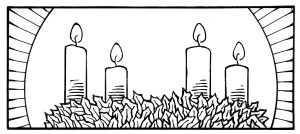 The O Antiphons are historic antiphons designated for the Magnificat, which is the traditional canticle for Vespers. There are seven O Antiphons, sung on the seven Vespers leading up to December 24th. Seven years ago, we asked Pr. Sean Daenzer to record these Antiphons sung to the Gregorian tones in The Brotherhood Prayer Book, beginning on page 397, along with the Magnificat. We’re posting them again this year with links to each one.
The O Antiphons are historic antiphons designated for the Magnificat, which is the traditional canticle for Vespers. There are seven O Antiphons, sung on the seven Vespers leading up to December 24th. Seven years ago, we asked Pr. Sean Daenzer to record these Antiphons sung to the Gregorian tones in The Brotherhood Prayer Book, beginning on page 397, along with the Magnificat. We’re posting them again this year with links to each one.
- December 17: O Wisdom
- December 18: O Adonai
- December 19: O Root of Jesse
- December 20: O Key of David
- December 21: O Dayspring
- December 22: O King of the Nations
- December 23: O Emmanuel
The order for singing this Vespers canticle is 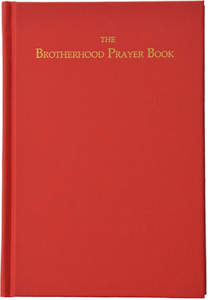 Antiphon, Magnificat, Antiphon. The name of each antiphon is derived from Old Testament titles given to the Messiah. In fact, the hymn, “O Come, O Come Emmanuel,” is a lyrical version of these antiphons.
Antiphon, Magnificat, Antiphon. The name of each antiphon is derived from Old Testament titles given to the Messiah. In fact, the hymn, “O Come, O Come Emmanuel,” is a lyrical version of these antiphons.
These Christmas cards remain…
After an avalanche of Christmas card orders, these are the designs
that we still have in stock. Have a closer look, see the inside, and find
purchase information on our Christmas cards page.
Gottesdienst Crowd discusses The Brotherhood Prayer Book
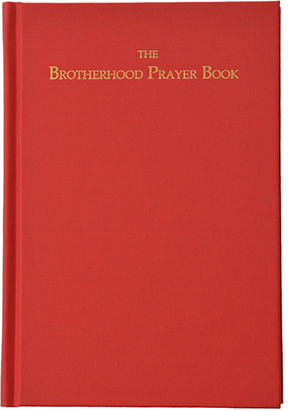 Why pray the Psalms, and why should they form the center of the Christian’s life of prayer? Why use Gregorian chant and how do you learn it? Why have a book for prayer at all? Join Pr. Jason Braaten (of Gottesdienst: The Journal of Lutheran Liturgy) and Pr. Michael Frese (of Redeemer Lutheran Church-Fort Wayne and Emmanuel Press) in this podcast which answers these questions and also discusses what led to the creation of The Brotherhood Prayer Book.
Why pray the Psalms, and why should they form the center of the Christian’s life of prayer? Why use Gregorian chant and how do you learn it? Why have a book for prayer at all? Join Pr. Jason Braaten (of Gottesdienst: The Journal of Lutheran Liturgy) and Pr. Michael Frese (of Redeemer Lutheran Church-Fort Wayne and Emmanuel Press) in this podcast which answers these questions and also discusses what led to the creation of The Brotherhood Prayer Book.
The Word Remains: All Saints’ Day
“Therefore, take comfort: it is not all over for those who have fallen asleep in the Lord! They are merely sleeping. He who by His own death-sleep in the grave sanctified our graves as mere bedrooms stands even now at the deathbed, calling, ‘Come to Me, all who labor and are heavy laden!’ And when He lays them in the dust of death, He says, ‘I will give you rest!’ and ‘Here you will find rest.’ And if death is sleep, then each of the dead has the hope of resurrection.”
-an excerpt from The Word Remains: Selected Writings on the Church Year and the Christian Life by Wilhelm Löhe
